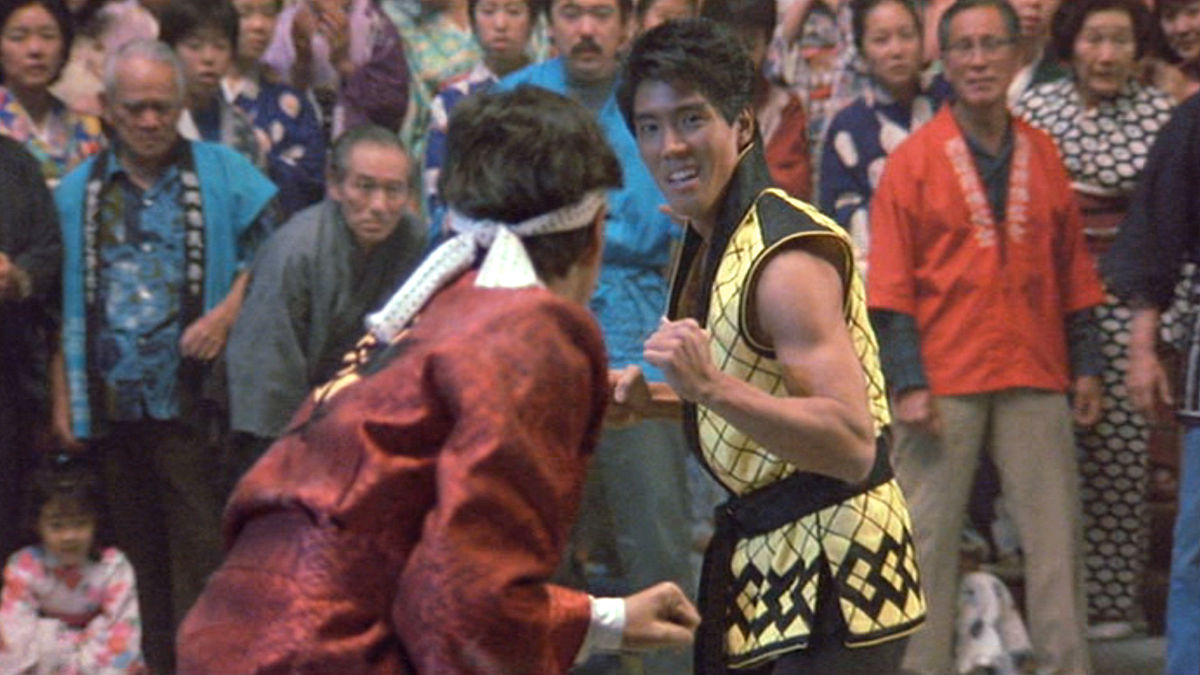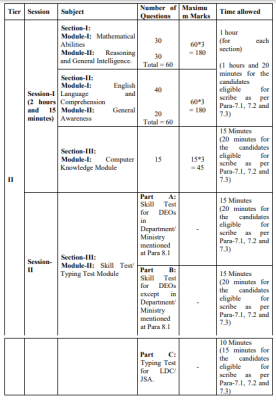The Karate Kid Part II: Analysis Of Characters And Themes

Table of Contents
Daniel LaRusso's Journey of Self-Discovery in Okinawa
Daniel LaRusso's experience in Okinawa represents a significant leap in his personal growth. Leaving the familiar behind, he faces a new set of challenges that test his resilience and reshape his understanding of himself and the world.
Facing New Challenges and Adversity
Okinawa presents Daniel with a stark contrast to his life in California. He grapples with a significant cultural adaptation, encountering difficulties with the language, the unfamiliar customs, and the vastly different Okinawan karate style. This cultural immersion, however, fuels his personal growth.
- Language Barrier: Daniel’s struggles to communicate effectively highlight the challenges of navigating a foreign culture.
- Different Fighting Style: The contrast between Miyagi-do karate and the more aggressive Okinawan styles forces Daniel to adapt his techniques and strategies.
- Chozen's Antagonism: The antagonistic Chozen Toguchi presents a formidable opponent, pushing Daniel to his physical and emotional limits, forcing him to develop new skills and mental fortitude.
Overcoming these obstacles fosters crucial self-reliance and resilience in Daniel. He learns to adapt, to persevere, and to embrace the unfamiliar. This journey culminates in his mastery of a new karate style and a deeper understanding of himself.
The Significance of Mr. Miyagi's Past
Mr. Miyagi's return to his homeland reveals a hidden layer to his character and provides context for his teaching methods. His backstory in Okinawa, including his past relationship with Chozen and his own experiences with Okinawan karate, adds significant depth to his persona as a sensei.
- Past Conflicts: Mr. Miyagi's past reveals the source of the conflict with Chozen and the weight of unresolved issues from his youth.
- Teaching Methods: His teaching methods, often seemingly cryptic, gain new meaning when seen through the lens of his Okinawan heritage and his own martial arts journey.
- Strengthened Bond: The shared experience in Okinawa strengthens the bond between Daniel and Mr. Miyagi, deepening their teacher-student relationship and highlighting the power of mentorship across cultural boundaries.
Understanding Mr. Miyagi's past enhances our appreciation for his wisdom, patience, and the profound impact he has on Daniel's life.
Exploring the Complexities of Okinawan Culture and Tradition
The Karate Kid Part II offers a glimpse into the rich tapestry of Okinawan culture, showcasing its traditions, values, and unique martial arts heritage.
The Depiction of Okinawan Martial Arts
The film contrasts Miyagi-do karate with other Okinawan styles, highlighting the nuanced differences in philosophy and technique. This comparison underscores the significance of tradition and the respect for martial arts history within Okinawan culture.
- Miyagi-do's Philosophy: Miyagi-do emphasizes self-defense, discipline, and inner peace, contrasting with the more aggressive styles prevalent in Okinawa.
- Okinawan Styles: The film showcases the strength and power of Okinawan karate, highlighting its unique techniques and historical context.
- Respect for Tradition: The film emphasizes the deep respect for tradition and the lineage of martial arts within Okinawan society.
This exploration of diverse martial arts styles enriches the narrative, adding layers of complexity and highlighting the importance of understanding different cultural approaches to self-defense.
Family, Honor, and Respect
Okinawan culture's emphasis on family, honor, and respect is central to the film. These values are presented both positively, in the supportive family units, and negatively, in the destructive pursuit of revenge by Chozen.
- Family Dynamics: The film showcases strong family bonds, particularly within Mr. Miyagi's family, contrasting with the fractured relationships within Chozen's family circle.
- Honor and Duty: The concept of honor and fulfilling one's familial duty is explored through the actions of both Mr. Miyagi and Chozen.
- Respect for Elders: The reverence for elders and the wisdom they possess is a recurring theme, highlighting the importance of intergenerational connection.
The film effectively portrays the significance of community and the importance of upholding traditional values within Okinawan society.
The Antagonist: Chozen Toguchi and the Exploration of Revenge
Chozen Toguchi serves as a powerful antagonist, embodying both the destructive potential of revenge and the complexities of cultural clash. His actions are deeply rooted in his personal history and his desire for retribution against Mr. Miyagi.
Chozen's Motivation and Actions
Chozen's backstory provides crucial context for his antagonism. His motivation stems from a deeply rooted resentment towards Mr. Miyagi and a desire to avenge past grievances.
- Unresolved Conflict: Chozen's actions are directly linked to unresolved conflicts and past injustices.
- Cultural Tensions: He represents certain cultural tensions and the destructive consequences of unchecked anger and a desire for revenge.
- Consequences of Actions: The film clearly illustrates the destructive consequences of Chozen's actions, highlighting the cyclical nature of violence.
Chozen's character adds a compelling dimension to the narrative, highlighting the darker aspects of human nature and the devastating effects of unchecked anger.
The Thematic Significance of Revenge
The theme of revenge and its destructive consequences is central to The Karate Kid Part II. Chozen’s relentless pursuit of vengeance showcases the cyclical nature of violence and the potential for self-destruction.
- Cycle of Violence: The film powerfully portrays the cyclical nature of violence and the need to break free from the pattern of retribution.
- Redemption and Reconciliation: While focused on revenge, the film also explores the possibility of redemption and reconciliation, ultimately suggesting that forgiveness and understanding can lead to healing.
- Alternative Paths: Daniel's choice to confront Chozen non-violently ultimately demonstrates an alternative path to resolving conflict.
The film’s exploration of revenge serves as a cautionary tale, underscoring the importance of choosing forgiveness and understanding over perpetuating cycles of violence.
Conclusion
The Karate Kid Part II is far more than just a sequel; it's a compelling exploration of personal growth, cultural exchange, and the complexities of revenge. Daniel LaRusso's journey of self-discovery in Okinawa is mirrored by Mr. Miyagi's own confrontation with his past, resulting in a nuanced examination of family, honor, and the destructive power of unchecked anger. The film’s exploration of Okinawan culture adds depth and richness to the narrative, underscoring the enduring power of tradition and the importance of understanding diverse cultural perspectives. The film’s enduring relevance lies in its exploration of universal themes that continue to resonate with audiences today. Revisit The Karate Kid Part II and engage in further discussion on the film’s impact and its lasting legacy. Explore the nuances of Okinawan culture, the philosophy of Miyagi-do, or the complexities of Chozen's character—the possibilities for further analysis of this cinematic classic are endless.

Featured Posts
-
 View The Daily Lotto Results Sunday May 4 2025
May 07, 2025
View The Daily Lotto Results Sunday May 4 2025
May 07, 2025 -
 Nintendos Action The End Of Ryujinx Emulator Development
May 07, 2025
Nintendos Action The End Of Ryujinx Emulator Development
May 07, 2025 -
 Nba Game Recap Cavaliers Dominate Bulls With 22 Point Victory
May 07, 2025
Nba Game Recap Cavaliers Dominate Bulls With 22 Point Victory
May 07, 2025 -
 Understanding Xrp Ripple A Beginners Guide To Investing
May 07, 2025
Understanding Xrp Ripple A Beginners Guide To Investing
May 07, 2025 -
 Download Ssc Chsl 2025 Final Result Pdf Check Your Marks Online
May 07, 2025
Download Ssc Chsl 2025 Final Result Pdf Check Your Marks Online
May 07, 2025
